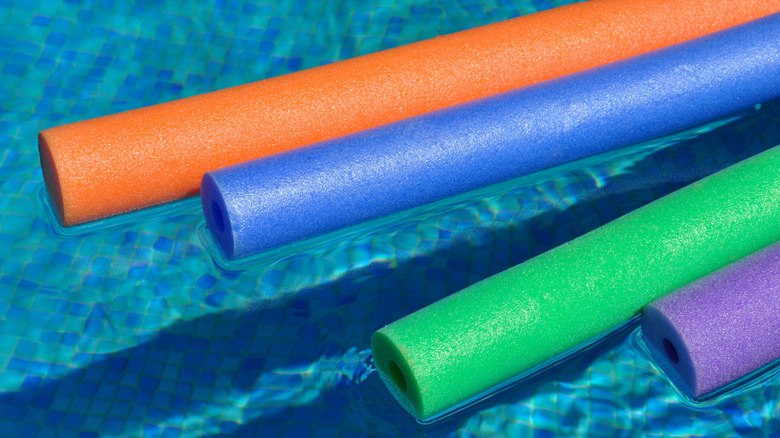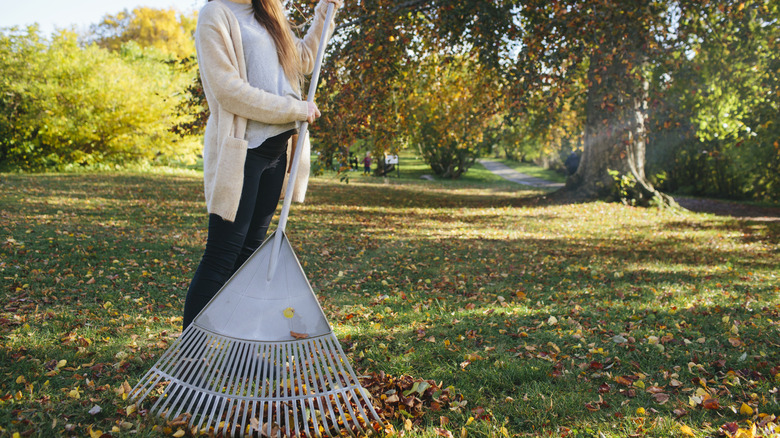Try This Pool Noodle Hack When Working In The Garden & Your Hands Will Thank You
If you've ever spent an afternoon raking leaves or using a hoe to clear weeds from your vegetable gardens, you know the pain of sore palms, stiff fingers, and aching wrists. Save your hands and arms by padding the handle of your rake or hoe with a common pool noodle. While you could keep pool noodles at the pool (and even learn how to build a pool noodle raft), they might be better used in your garden. You could end up not only saving yourself blisters, but also maybe avoiding a serious injury.
Every year, gardeners can injure themselves by attacking weeds or leaves a little too furiously. Raking or digging can aggravate arthritis or even cause tendonitis, the swelling of your hands or wrists sometimes caused by gripping tools too hard. Gardeners may find themselves at risk for stress conditions like carpal tunnel syndrome, too, since the repetitive motions put ligaments at risk. Orthopedic surgeons recommend gardeners always use gloves, take breaks, and perhaps, most importantly, use hand and wrist-friendly tools with padded handles.
Padded handles or padded gloves will help you grip a tool better, and ultimately ease the strain on muscles, which can reduce the risk of injury to your ligaments or joints. Luckily, there's an easy and cheap hack using a common pool noodle, where you can turn any garden tool with a long handle into an ergonomic tool that might help you avoid painful injuries. All you need is a pool noodle and WD-40.
The pool noodle hack is simple to do
To pad your rake or any other soil preparation tools, simply grab a pool noodle. They're available at most Dollar Trees at a very affordable price. Spray a bit of WD-40 into the hole of the pool noodle and then slip it over your wooden handle. If the handle doesn't fit, you can slice the pool noodle lengthwise, and clamp it around the wooden handle. If your handle is too short for a full-size noodle, that's no problem. Just cut the pool noodle to fit.
Of course, don't forget to take frequent breaks. Doctors recommend stopping for a break every fifteen minutes. Be aware of your posture as well — not just for your back, but also your hands. Keep wrists straight, rather than bent awkwardly, when working. Also, don't forget to change your grip, switching out your dominant hand on the tool handle regularly to avoid putting too much strain on one side versus the other. If you're sore after gardening and the pain doesn't go away in a couple of days, it might be time to visit the doctor.

